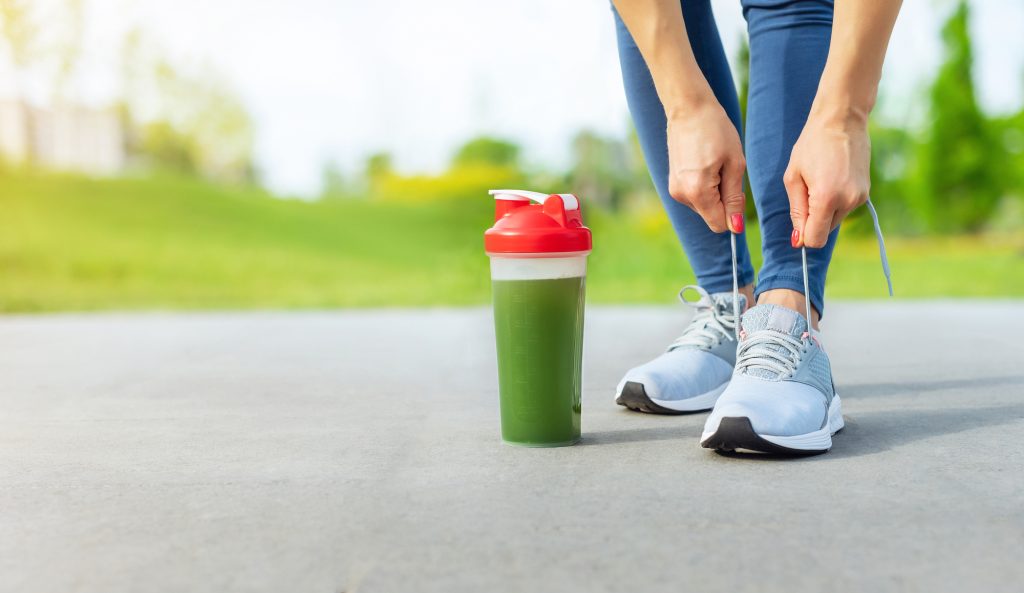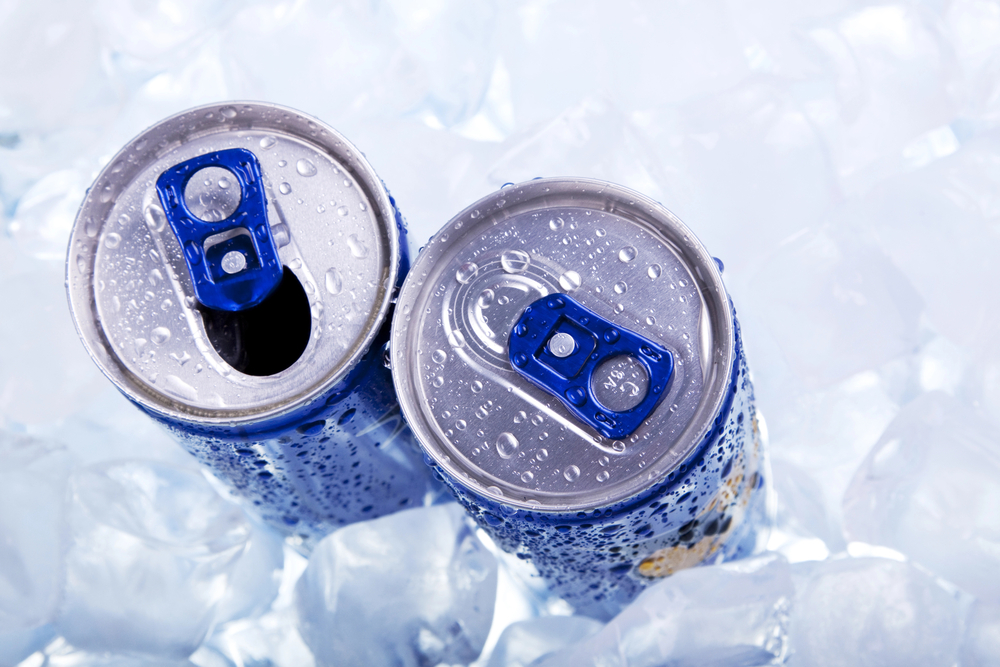Running nutrition is fundamental to a runner’s performance and recovery, serving as the essential fuel that propels their strides. Whether you’re a casual weekend jogger or in rigorous training for a marathon, grasping the nuances of what to consume before, during, and after your runs is crucial for sustaining energy levels, enhancing performance, and facilitating quicker recovery. Achieving the correct mix of carbohydrates, proteins, and fats, along with sufficient vitamins and minerals, is key to optimizing your body’s functionality at its peak.

Before lacing up your running shoes, it’s important to consider what you’re fueling your body with. Effective pre-run nutrition can prevent mid-run energy dips and stomach discomfort. During your runs, especially those that are longer in duration, your body needs additional energy and electrolytes to sustain endurance and prevent dehydration. After crossing the finish line or completing a training session, the focus should shift to replenishing nutrient stores and repairing muscle tissue, which is critical for consistent training without injury or undue fatigue.
Key Takeaways
- Proper nutrition enhances running performance and recovery.
- Balanced pre-run meals help prevent energy deficits during your runs.
- Post-run nutrition is essential for muscle recovery and rehydration.
Quick Navigation
Nutrition Basics for Runners
Proper nutrition is essential for performance and recovery. A balanced diet is key to maintaining general health and achieving nutrition goals.
Macronutrients and Energy Sources
Macronutrients provide the primary energy sources for running. Carbohydrates are vital as they replenish glycogen stores, the quickest energy source your muscles can use. Aim for complex carbohydrates like whole grains, which provide a steady release of energy. An average person might need about 3-5 grams of carbohydrates per kilogram of body weight, but as a runner, you should increase this intake, especially if you’re engaging in long-distance running.

Protein is critical for muscle repair and growth. To ensure muscle recovery, you should consume around 1.2 to 2.0 grams of protein per kilogram of body weight daily. Lean proteins like chicken, fish, and legumes are good macronutrient sources.
Fats should not be neglected, as they are an important fuel source for longer exercise bouts when carbohydrate reserves deplete. Aim for healthy fats from sources like avocados, nuts, and olive oil, which can help absorb fat-soluble vitamins crucial for good health.
Micronutrients and Hydration
Focus on a diet rich in various micronutrients for overall health and to support your immune system. Fat-soluble vitamins (A, D, E, K), water-soluble vitamins (C and the B-complex), minerals, and antioxidants can often be sufficiently obtained through a diet filled with fruits, vegetables, nuts, seeds, and lean proteins.
Hydration is just as important as food intake. Aim for ounces of fluids that leave your urine a pale yellow, indicating good hydration. Be aware of your sweat rate to determine fluid needs before, during, and after running.
Understanding Caloric Needs
Your caloric needs are individual to your body composition, mileage, intensity of training, and weight loss goals, if any. An average person might require about 2,000 to 2,500 calories daily, but runners often need more to sustain their energy levels. A runner’s calorie intake must be ample enough to provide sufficient energy but balanced to avoid unnecessary weight gain. Tailor your diet to your needs and consider working with a nutritionist to refine your eating plan for optimal performance.
Remember, a successful runner’s diet isn’t just about the calories or the fuel source; it’s about making every calorie count with nutrient-dense foods to support your training and recovery needs.
Pre-Run Nutrition
Optimizing your pre-run nutrition is crucial for delivering a steady energy supply throughout your run. Whether you’re gearing up for a long or casual easy run, what you consume beforehand can impact your performance.
Timing Your Meals
Plan to eat a small meal 2-4 hours before your run to ensure it’s digested and converted into energy. The time leading up to race day is not the best time for experimentation, so establish a routine that works for you and stick to it. Easy runs might require less stringent timing, but giving yourself at least 30 minutes after a small snack is still beneficial.
Choosing the Right Pre-Run Meals and Snacks
For sustained energy, focus on whole grains and simple carbohydrates as they’re quick to digest and provide a boost. A slice of whole-grain toast with peanut butter or a small serving of oatmeal with fruit are good options. Keep the protein and fat content moderate to avoid a sluggish feeling during your run.
Hydration Before Running
Proper hydration starts well before your feet hit the pavement. Aim to drink a comfortable amount of fluids, around 17-20 ounces, to maintain hydration without feeling a sloshing stomach. Knowing how much fluid you need varies by individual, so use your training days to refine your hydration strategy.
Special Considerations for Morning Runs
If you prefer a morning run, having something in your stomach is a good idea to fuel your workout. Even on an empty stomach, a small snack such as a banana or an energy bar 30 minutes prior can make a great time difference in maintaining your energy levels. Always listen to your body to determine your best time for food intake in the morning.
Nutrition During Runs
Optimal nutrition during runs is essential for maintaining energy levels and hydration. It is crucial to address this aspect whether you’re in training sessions or gearing up for race day.

Fueling on the Go
You need to replenish carbohydrates to sustain energy during longer training runs or races. Energy gels are a convenient option that can be consumed easily on the move, providing a quick glucose boost. When selecting gels, look for those that include multiple transportable carbohydrates (like glucose and fructose) for efficient absorption.
Hydration Strategies
During runs, you should aim to drink fluids regularly to prevent dehydration. A mix of water and sports drinks is advisable, as sports drinks can provide electrolytes and additional carbohydrates. To maintain optimal hydration, consume about 16-24 ounces of fluids per hour.
Longer Runs and Races
Marathon runners and those participating in half or full marathons must carefully plan their fueling strategy. Energy drinks can offer a blend of energy and electrolytes, suitable for longer races. Consider carrying your own if the course does not provide the brand you have trained with.

Adapting to Personal Needs
Every runner has unique requirements; what works for one may not suit another. Listen to your body and adjust quantities or types of fuel and fluids according to your individual needs and specific training scenarios. Personal experimentation during training can help hone your perfect nutrition strategy for longer runs.
Post-Run Recovery Nutrition
Proper nutrition is crucial after running; it helps the body repair tissues, replenish energy stores, and prepare for future workouts. Understanding how to optimize muscle recovery, rehydrate effectively, time your post-run meals, and prevent injuries through nutrition can significantly enhance your recovery process.
Optimizing Muscle Recovery
After a run, your muscles need to repair and rebuild, which requires protein. Aiming for 20-30 grams of protein post-run can help facilitate muscle repair. This can come from lean meats, excellent sources of essential amino acids, or protein powders if you find whole food difficult to digest immediately after exercise.
- Best Foods for Muscle Recovery:
- Lean meats like chicken or turkey
- Plant-based protein powders mixed with water or a milk alternative
Rehydrating Effectively
Rehydration is key to post-run recovery, especially if you’ve sweated a lot. You should aim to replace fluid losses by drinking 12-24 ounces of fluids after shorter runs and more after longer distances like marathons. Watermelon, as mentioned in Healthline, is refreshing and provides citrulline and lycopene, which aid in recovery.
- Effective Recovery Drinks:
- Water
- Electrolyte solutions
- Natural fruit juices diluted with water
Post-Run Meal Timing and Composition
The timing of your post-run meal is essential. Aim to eat within 45 minutes to an hour after your run to maxmimize glycogen replenishment. The meal should have a ratio of carbohydrates to protein of about 3:1 to effectively restore muscle glycogen. Carbohydrates are runners’ primary energy source, and replenishing them promptly aids in quicker recovery.
- Ideal Post-Run Meal Composition:
- Carbohydrates: Rice, pasta, or bread
- Protein: Grilled chicken or a plant-based protein source
- Hydration: Water or an electrolyte drink

Nutritional Strategies for Injury Prevention
Nutrition can play a role in preventing injuries by maintaining the health of muscles and tissues. Amino acids from protein are the building blocks of muscle repair, while anti-inflammatory foods can help reduce muscle soreness. To prevent gastrointestinal distress, avoid high-fiber, high-fat, or overly processed foods immediately after running, as they can cause GI distress.
- Key Foods for Injury Prevention:
- Omega-3 rich fish or flaxseeds for their anti-inflammatory properties
- A small snack like a banana or a sports bar that is easy on the stomach
Specific Diets and Dietary Restrictions
Adapting your diet to meet the physical demands of running is integral to your performance and recovery. Understanding the nutritional balance is key, whether you’re exploring a plant-based lifestyle or navigating dietary restrictions due to allergies.
Plant-Based and Vegan Diets for Runners
If you’re following a vegan diet, your focus should be replacing traditional protein sources with plant-based alternatives. It’s a good idea to consult with a registered dietitian to ensure you’re getting a broad spectrum of nutrients for runners. Incorporate various sources of protein like lentils, chickpeas, and quinoa. For recovery, consider a vegan recovery drink or plant-derived protein powders.
Gluten-Free and Other Allergy-Conscious Eating
Restricting gluten or other allergens doesn’t have to compromise your nutritional intake. Choose whole foods like fruits, vegetables, and lean meats that are naturally gluten-free. Be vigilant about reading labels, as gluten and allergens can be hidden in many processed foods. For carbohydrate intake, rely on gluten-free grains like rice, corn, and oats.
Incorporating Supplements Responsibly
Supplements can bridge nutritional gaps, especially if your diet is subject to restrictions. Key vitamins and minerals like calcium and iron may require mindful supplementation. Make sure to opt for high-quality products recommended by health professionals and in dosages that contribute to your general health and good health without exceeding the recommended amounts.
Nutrition for Different Types of Runs
Proper nutrition is critical to support your running performance, whether sprinting full-throttle, covering long distances, or engaging in an easy run. Your body’s fueling requirements vary significantly with the intensity and duration of the activity.
Fueling for Short, High-Intensity Runs
For short, high-intensity runs, your body relies predominantly on glycogen stores for energy. It’s essential to have a carbohydrate diet to replenish these stores regularly. Before high-intensity efforts, a small, easily digestible snack can boost your performance. Think of a banana or a slice of toast with jam. Post-run, refuel with a combination of protein and carbs to aid recovery and prepare you for your next intense exercise.
Endurance Runs and Marathon Prep
When preparing for endurance runs and marathon training, your nutrition plan should shift to support sustained energy release. For long run days, focus on complex carbohydrates in foods like whole-grain pasta, rice, and bread that provide a steady energy source. Elite runners and endurance athletes should consider fueling during the run with energy gels or chews formulated to be easily digestible. Post-run, replenish your body with a balanced meal containing carbs, protein, and healthy fats to aid in the repairing and refueling of the body.
Easy Runs and Active Recovery
On days meant for easy runs or active recovery, your nutrition needs aren’t as demanding, but supporting the recovery process with adequate nutrition is still important. A balanced diet with various fruits, vegetables, lean proteins, and whole grains will suffice for new and seasoned runners alike. Stay hydrated and consider incorporating anti-inflammatory foods like berries or salmon to aid recovery and prepare you for your next training session.
Nutrition Planning and Professional Guidance
Tailoring your nutrition to your training and health goals is essential in running. Engaging with professional guidance ensures that your meal plans align with your specific needs, whether aiming for weight gain, weight loss, or overall health maintenance.

Developing Customizable Meal Plans
Creating customizable meal plans is the foundation of effective running nutrition. As a runner, your energy needs fluctuate based on training intensity and duration. Defining your nutrition goals early is good—be it for weight management or enhancing performance. Structuring your meal plan to include a balance of carbohydrates, proteins, and healthy fats can bolster your immune system and provide sustained energy. Remember, a healthy diet is not one-size-fits-all; it should reflect your unique lifestyle and fitness level.
Working with a Sports Dietitian
Consulting a registered dietitian specializing in sports nutrition can make a big difference. They can offer personalized advice tailored to your needs beyond generic nutritional guidelines. The most important thing is ensuring your diet supports your specific training regimen and nutrition goals while preventing gastrointestinal distress during runs. A sports dietitian can help identify the right and wrong things to eat, ensuring that your body is adequately fueled from start to finish.
Incorporating Practical Tips and Best Practices
- Hydration: It’s not just about what you eat; staying hydrated is crucial. A rule of thumb is to drink water throughout the day, not just during workouts.
- Timing: To minimize discomfort, consume your main meal 3-4 hours before running. A light, carbohydrate-rich snack 30 minutes to an hour before can be beneficial.
- Recovery: Post-run nutrition should aim to replenish glycogen stores and repair muscle. This often includes a mix of carbs and protein.
Leveraging these best practices can enhance your ability to reach the finish line feeling strong.
Monitoring and Adjusting for Performance
Track your dietary intake and performance over time. Adjust meals and snacks as needed to counteract fatigue or address weight gain or weight loss goals. Look out for signs of oxidative stress, such as prolonged soreness, which may indicate inadequate intake of antioxidants to combat free radicals. Performance metrics can inform whether your nutritional strategy needs tweaking, ensuring a great time during your runs and optimal general health.
Running Nutrition Conclusion
Mastering running nutrition is an ongoing process that significantly impacts a runner’s performance, recovery, and overall health. From the meticulous planning of pre-run meals to the strategic intake of nutrients during runs and the crucial role of post-run recovery nutrition, every aspect is pivotal in how effectively you can train, perform, and recover. The balance of macronutrients, hydration, and timing are key elements that can enhance endurance, speed up recovery, and prevent injuries when tailored to individual needs.
Embracing running nutrition is about fueling for the miles ahead and nourishing your body to support your running goals and promote long-term health and well-being. Whether you’re a novice jogger or an elite marathoner, the principles of running nutrition offer a foundation to build your training regimen, ensuring that the right nutrients power every step you take. Remember, the journey to optimal performance is both a science and an art, requiring a commitment to learning and adapting your nutritional strategies to meet the demands of your body and the goals of your heart.


